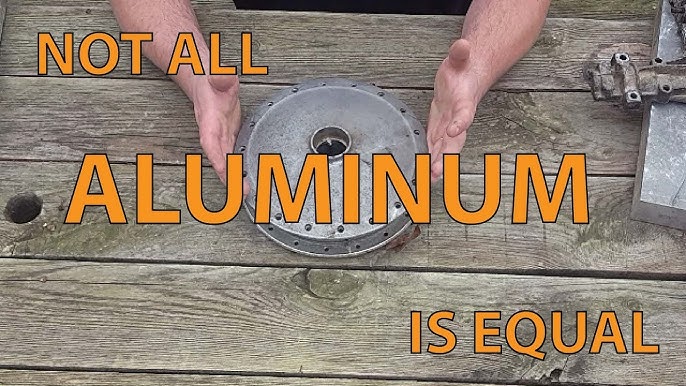Little Known Questions About Stahl Specialty Company.
Little Known Questions About Stahl Specialty Company.
Blog Article
More About Stahl Specialty Company
Table of ContentsExcitement About Stahl Specialty CompanyThe Best Strategy To Use For Stahl Specialty CompanyExcitement About Stahl Specialty CompanyThe Facts About Stahl Specialty Company RevealedThe Ultimate Guide To Stahl Specialty Company
Chemical Comparison of Cast Aluminum Alloys Silicon promotes castability by reducing the alloy's melting temperature level and boosting fluidness throughout spreading. Furthermore, silicon contributes to the alloy's stamina and wear resistance, making it important in applications where toughness is vital, such as automobile parts and engine parts.It additionally improves the machinability of the alloy, making it simpler to refine into finished items. In this method, iron adds to the total workability of aluminum alloys. Copper increases electric conductivity, making it beneficial in electric applications. It likewise enhances deterioration resistance and contributes to the alloy's overall stamina.
Manganese adds to the toughness of aluminum alloys and boosts workability. It is typically used in functioned aluminum items like sheets, extrusions, and accounts. The existence of manganese aids in the alloy's formability and resistance to splitting during construction procedures. Magnesium is a lightweight component that offers toughness and impact resistance to aluminum alloys.
It permits the production of lightweight elements with exceptional mechanical properties. Zinc improves the castability of aluminum alloys and aids control the solidification process during spreading. It boosts the alloy's strength and hardness. It is commonly located in applications where intricate shapes and fine details are needed, such as ornamental spreadings and particular automotive parts.
An Unbiased View of Stahl Specialty Company
Since aluminum-silicon alloys have good casting homes, high gas homes, easy processes, and superb deterioration resistance, aluminum-silicon alloys are most frequently utilized in the die-casting industry in your home and abroad. At the exact same time, aluminum-silicon alloys are also reasonably early and widely identified alloys established and utilized in die-casting. After continuous study and enhancement, the majority of the existing international mainstream aluminum-silicon alloys have actually been completed and are absolutely nothing greater than A356, A360, A380, ADC12, B390, and A413.
The main thermal conductivity, tensile toughness, yield stamina, and elongation differ. Amongst the above alloys, A356 has the highest thermal conductivity, and A380 and ADC12 have the least expensive.

Rumored Buzz on Stahl Specialty Company
In precision spreading, 6063 is appropriate for applications where detailed geometries and top notch surface coatings are critical. Instances include telecommunication rooms, where the alloy's superior formability enables sleek and visually pleasing layouts while maintaining architectural integrity. Similarly, in the Lights Solutions industry, precision-cast 6063 elements develop stylish and reliable lighting fixtures that need intricate shapes and great thermal efficiency.
(https://fliphtml5.com/homepage/stahlspecialc)
It brings about a finer surface area finish and much better deterioration resistance in A360. Furthermore, the A360 shows superior elongation, making it perfect for complex and thin-walled elements. In precision casting applications, A360 is appropriate for industries such as Consumer Electronic Devices, Telecommunication, and Power Devices. Aluminum Casting. Its improved fluidness enables complex, high-precision parts like smartphone cases and communication device housings.

In accuracy spreading, aluminum 413 beams in the Consumer Electronics and Power Tools industries. This alloy's remarkable deterioration resistance makes it an exceptional option for exterior applications, ensuring long-lasting, resilient products in the pointed out industries.
An Unbiased View of Stahl Specialty Company
The light weight aluminum alloy you select will considerably affect both the casting process and the properties of the final product. Since of this, you should make your decision very carefully and take an enlightened technique.
Establishing the most appropriate aluminum alloy for your application will certainly imply considering a large range of characteristics. These comparative alloy attributes follow the North American Die Spreading Organization's standards, and we've divided them right into 2 groups. Foundries in Missouri. The first group addresses alloy characteristics that impact the production procedure. The 2nd covers features affecting the residential properties of the end product.
The alloy you pick for die spreading straight influences a number of facets of the spreading process, like how very easy the alloy is to deal with and if it is vulnerable to casting issues. Warm splitting, also called solidification cracking, is a normal die spreading defect for light weight aluminum alloys that can result in internal or surface-level tears or fractures.
How Stahl Specialty Company can Save You Time, Stress, and Money.
Particular aluminum alloys are more prone to warm cracking than others, and your option needs to consider this. An additional typical problem found in the die casting of light weight aluminum is pass away soldering, which is when the actors sticks to the die walls and makes ejection difficult. It can damage both the actors and the die, so you need to search for alloys with high anti-soldering homes.
Corrosion resistance, which is currently a noteworthy quality of aluminum, can vary significantly from alloy to alloy and is a vital characteristic to consider depending on the ecological conditions your product will certainly be subjected to. Use resistance is one more residential property commonly looked for in light weight aluminum items and can differentiate some alloys.
Report this page